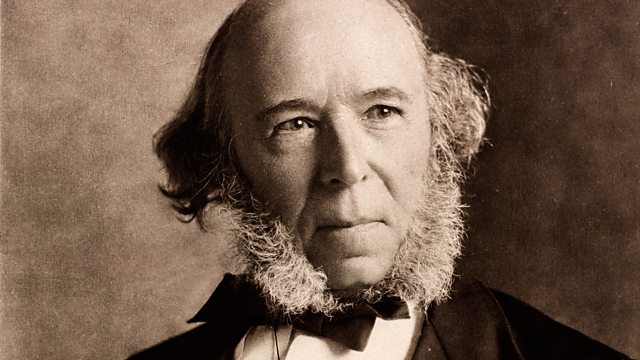Social Darwinism
Melvyn Bragg and his guests discuss Social Darwinism, a school of thought which attempted to apply Darwin's ideas about evolution to human society.
Melvyn Bragg and his guests discuss Social Darwinism. After the publication of Charles Darwin's masterpiece On the Origin of Species in 1859, some thinkers argued that Darwin's ideas about evolution could also be applied to human society. One thinker particularly associated with this movement was Darwin's near-contemporary Herbert Spencer, who coined the phrase 'survival of the fittest'. He argued that competition among humans was beneficial, because it ensured that only the healthiest and most intelligent individuals would succeed. Social Darwinism remained influential for several generations, although its association with eugenics and later adoption as an ideological position by Fascist regimes ensured its eventual downfall from intellectual respectability.
With:
Adam Kuper
Centennial Professor of Anthropology at the LSE, University of London
Gregory Radick
Professor of History and Philosophy of Science at the University of Leeds
Charlotte Sleigh
Reader in the History of Science at the University of Kent.
Producer: Thomas Morris.
Last on
LINKS AND FURTHER READING
��
��
��
��
��
��
��
READING LIST:
��
Robert C. Bannister, Social Darwinism: Science and Myth in Anglo-American Social Thought (1st edition 1979; Temple University Press, 1988)
��
Paul Crook, Darwin’s Coat-Tails: Essays on Social Darwinism (Peter Lang, 2007)
��
Charles Darwin, The Descent of Man, and Selection in Relation to Sex (John Murray, 1871)
��
Carl Degler, In Search of Human Nature: The Decline and Revival of Darwinism in American Social Thought (Oxford University Press, 1992)
��
Stephen Jay Gould, Dinosaur in a Haystack: Reflections in Natural History (Jonathan Cape, 1996), especially ch. 24, ‘The Most Unkindest Cut of All’
��
Mike Hawkins, Social Darwinism in European and American Thought 1860-1945: Nature as Model and Nature as Threat (Cambridge University Press, 1997)
��
J. Hodge and G. Radick (eds.), The Cambridge Companion to Darwin (Cambridge: Cambridge University Press, 2nd edition, 2009), especially ch. 9, ‘Darwin, Social Darwinism and Eugenics’ by Diane B. Paul
��
Richard Hofstadter, Social Darwinism in American Thought (1st edition 1944, Beacon Press, 1992)
��
Angelique Richardson, Love and Eugenics in the Late Nineteenth Century: Rational Reproduction and the New Woman (Oxford University Press, 2003)
��
Angelique Richardson (ed.), After Darwin: Animals, Emotions, and the Mind (Rodopi, 2013)
��
Eckart Voigts, Barbara Schaff, Monika Pietrzak-Franger (eds.), Reflecting on Darwin (Ashgate, 2014)
��
Credits
| Role | Contributor |
|---|---|
| Presenter | Melvyn Bragg |
| Interviewed Guest | Adam Kuper |
| Interviewed Guest | Gregory Radick |
| Interviewed Guest | Charlotte Sleigh |
| Producer | Thomas Morris |
Broadcasts
- Thu 20 Feb 2014 09:00����ý Radio 4
- Thu 20 Feb 2014 21:30����ý Radio 4
Featured in...
![]()
19th Century—In Our Time
Browse the 19th Century era within the In Our Time archive.
![]()
Science—In Our Time
Scientific principles, theory, and the role of key figures in the advancement of science.
In Our Time podcasts
Download programmes from the huge In Our Time archive.
The In Our Time Listeners' Top 10
If you’re new to In Our Time, this is a good place to start.
Arts and Ideas podcast
Download the best of Radio 3's Free Thinking programme.
Podcast
-
![]()
In Our Time
Melvyn Bragg and guests discuss the ideas, people and events that have shaped our world.



